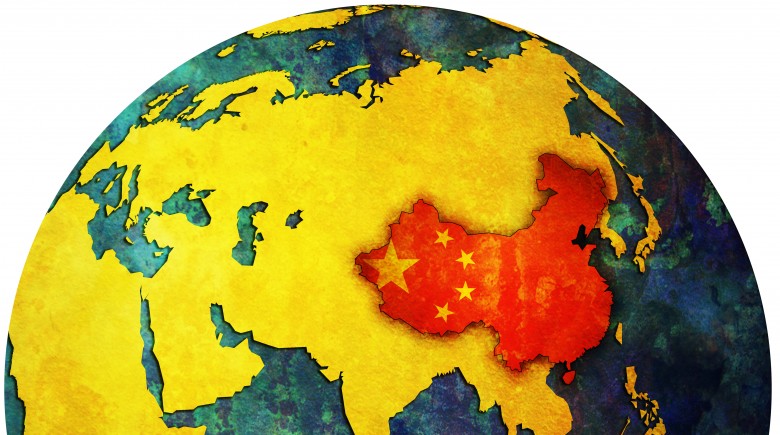Ah, that ever elusive black swan event. It is always a popular game in Wall Street circles to predict the unpredictable and black swan events fit that template to a tee. Even better, no one expects you to be right or holds you accountable for being wrong. Come to think of it, that is true with all of Wall Streets predictions! But, black swan event predictions have an added bonus: if, by some miracle, your prediction comes true you will undoubtedly be feted as a sage for years to come. Your appearances on CNBC will be endless and your future book sales all but guaranteed.
For those of you unfamiliar with the term, a black swan event is when something occurs that is very surprising and seemingly comes out of nowhere. Here is the example that investopedia uses:
Black swan events are typically random and unexpected. For example, the previously successful hedge fund Long Term Capital Management (LTCM) was driven into the ground as a result of the ripple effect caused by the Russian government’s debt default. The Russian government’s default represents a black swan event because none of LTCM’s computer models could have predicted this event and its subsequent effects.
Now, I think that it would be hard to argue that the LTCM debacle was nearly impossible to predict. Heck, even the employees of the company thought it couldn’t happen. Over the years however, these black swan predictions have become a bit more, well… predictable. One of the all time favorites of the doom and gloom crowd, who naturally tend to be attracted to black swan scenarios, is the collapse of China. Or, to be more accurate, a slowdown in China. Under this future, China will surprise the world with a bad GDP number or bank troubles, real estate collapses, etc. There are many people who subscribe to variations of this fate for China. Here’s a recent one:
But the market has been worried about US tapering which is the least of their worries, it doesn`t matter a hill of beans whether the Fed buys $65 or $85 billion a month in Treasuries. But China`s considerable slowdown is what the market should be worried about, especially anything related to industrial from Caterpillar to Oil and Copper and the other industrial metals because everything is inter-related from Iron-Ore in Australia and Brazil, to the mining companies in Europe, to global demand for commodities like Oil and Copper.
Hey, that sounds reasonable and even logical to me, and many other people too, I am sure. But here’s the thing: I don’t think it qualifies as a “black swan” event. Sure, a drastic slowdown in China is not expected, but a slowdown has already occurred from their previous heights of GDP growth and furthermore, many an analyst has warned investors to keep a wary eye out for further sliding. Now, to be fair, the article at the link goes into further detail and is quite specific in its predictions — be sure to read the whole thing. However, even if China does cause a huge global downturn, does it really qualify for “black swan” status? After all, it’s a huge and growing economy, about the only one of significant size. Wouldn’t a downturn there obviously effect the world’s economy for the worse? I think it is safe to say that nearly everyone would be mildly surprised by a drastic slowdown in China, but I’m not sure it would shock anyone. If you told me that say, Vietnam (just to use a random example–I’m not making black swan predictions!) started a chain of events that led to a worldwide depression, then yes, that would be a genuine surprise and indeed qualify as a black swan moment. Now, don’t misunderstand, anything that triggers horrible economic news is not good no matter what you call it. And a drastic change in the Chinese economy would no doubt be painful for a whole lot of people. But in the end, I’m just not sure it qualifies as that ever elusive black swan. What do you think? Have a prediction of your own? Let us know!
Ah, that ever elusive black swan event. It is always a popular game in Wall Street circles to predict the unpredictable and black swan events fit that template to a tee. Even better, no one expects you to be right or holds you accountable for being wrong. Come to think of it, that is true with all of Wall Streets predictions! But, black swan event predictions have an added bonus: if, by some miracle, your prediction comes true you will undoubtedly be feted as a sage for years to come. Your appearances on CNBC will be endless and your future book sales all but guaranteed.
For those of you unfamiliar with the term, a black swan event is when something occurs that is very surprising and seemingly comes out of nowhere. Here is the example that investopedia uses:
Black swan events are typically random and unexpected. For example, the previously successful hedge fund Long Term Capital Management (LTCM) was driven into the ground as a result of the ripple effect caused by the Russian government’s debt default. The Russian government’s default represents a black swan event because none of LTCM’s computer models could have predicted this event and its subsequent effects.
Now, I think that it would be hard to argue that the LTCM debacle was nearly impossible to predict. Heck, even the employees of the company thought it couldn’t happen. Over the years however, these black swan predictions have become a bit more, well… predictable. One of the all time favorites of the doom and gloom crowd, who naturally tend to be attracted to black swan scenarios, is the collapse of China. Or, to be more accurate, a slowdown in China. Under this future, China will surprise the world with a bad GDP number or bank troubles, real estate collapses, etc. There are many people who subscribe to variations of this fate for China. Here’s a recent one:
But the market has been worried about US tapering which is the least of their worries, it doesn`t matter a hill of beans whether the Fed buys $65 or $85 billion a month in Treasuries. But China`s considerable slowdown is what the market should be worried about, especially anything related to industrial from Caterpillar to Oil and Copper and the other industrial metals because everything is inter-related from Iron-Ore in Australia and Brazil, to the mining companies in Europe, to global demand for commodities like Oil and Copper.
Hey, that sounds reasonable and even logical to me, and many other people too, I am sure. But here’s the thing: I don’t think it qualifies as a “black swan” event. Sure, a drastic slowdown in China is not expected, but a slowdown has already occurred from their previous heights of GDP growth and furthermore, many an analyst has warned investors to keep a wary eye out for further sliding. Now, to be fair, the article at the link goes into further detail and is quite specific in its predictions — be sure to read the whole thing. However, even if China does cause a huge global downturn, does it really qualify for “black swan” status? After all, it’s a huge and growing economy, about the only one of significant size. Wouldn’t a downturn there obviously effect the world’s economy for the worse? I think it is safe to say that nearly everyone would be mildly surprised by a drastic slowdown in China, but I’m not sure it would shock anyone. If you told me that say, Vietnam (just to use a random example–I’m not making black swan predictions!) started a chain of events that led to a worldwide depression, then yes, that would be a genuine surprise and indeed qualify as a black swan moment. Now, don’t misunderstand, anything that triggers horrible economic news is not good no matter what you call it. And a drastic change in the Chinese economy would no doubt be painful for a whole lot of people. But in the end, I’m just not sure it qualifies as that ever elusive black swan. What do you think? Have a prediction of your own? Let us know!






